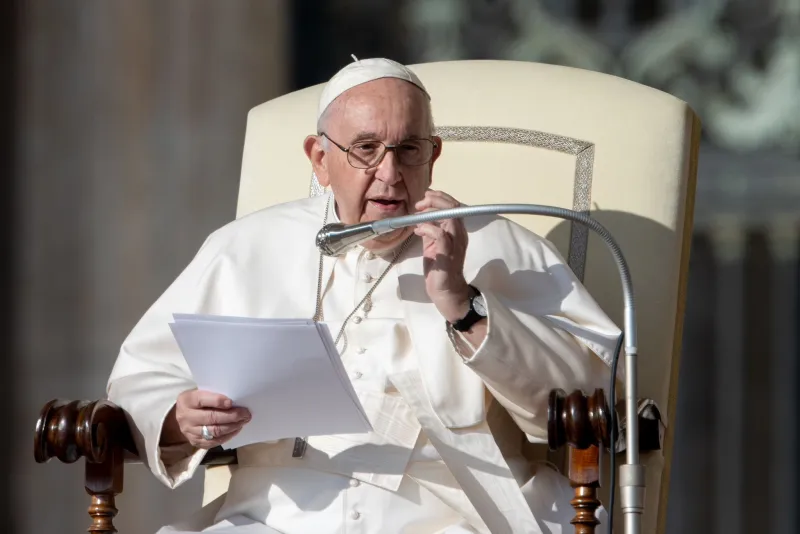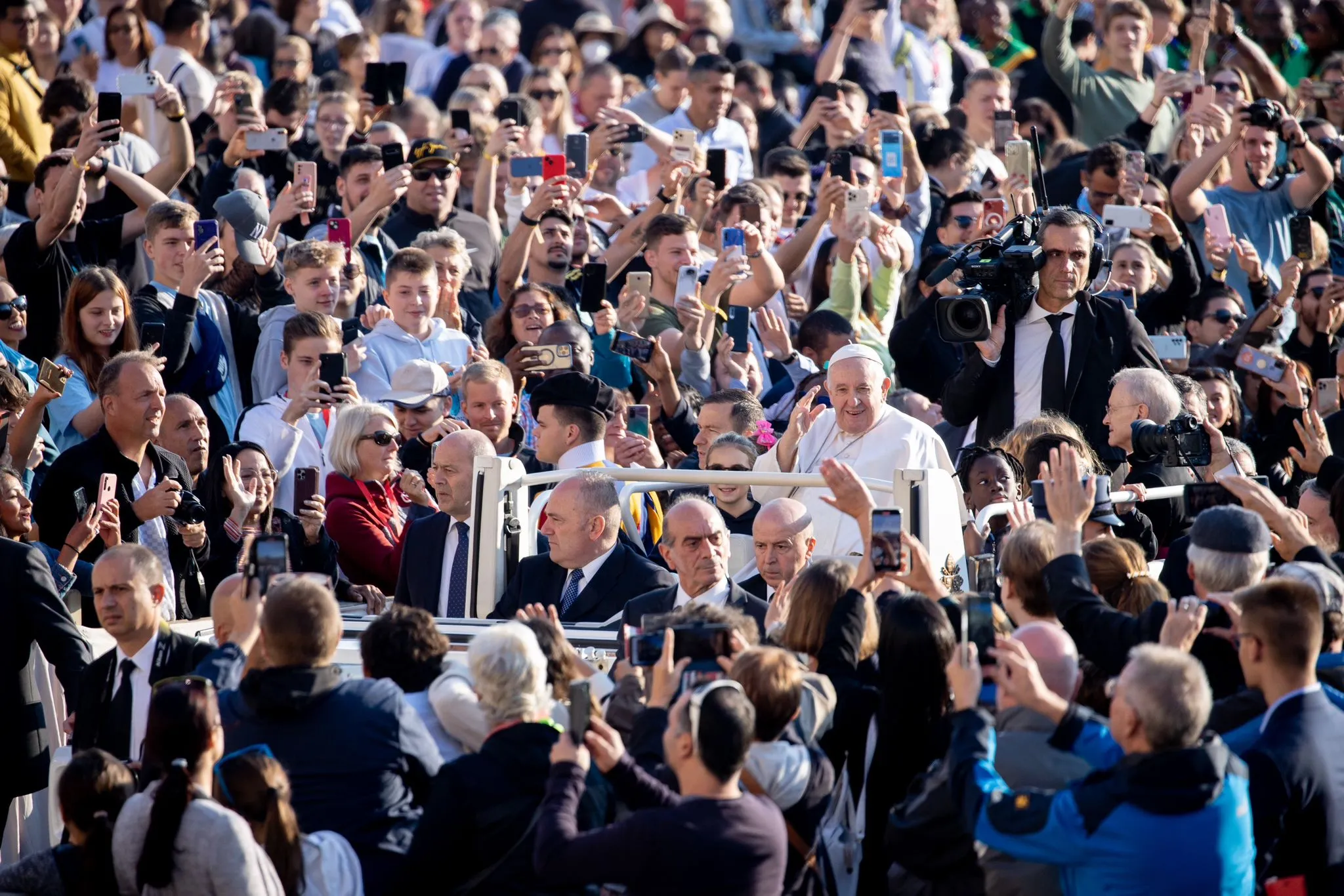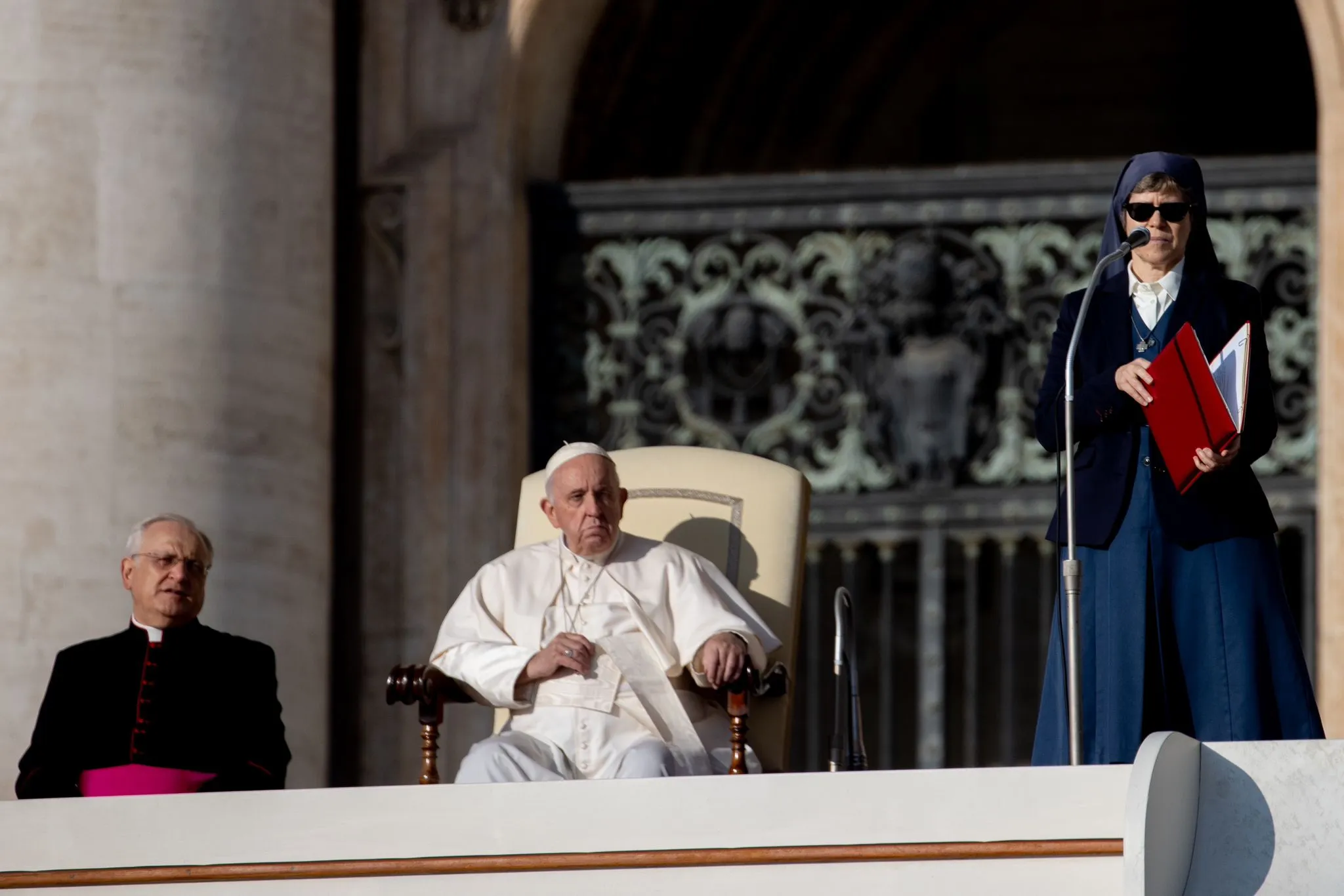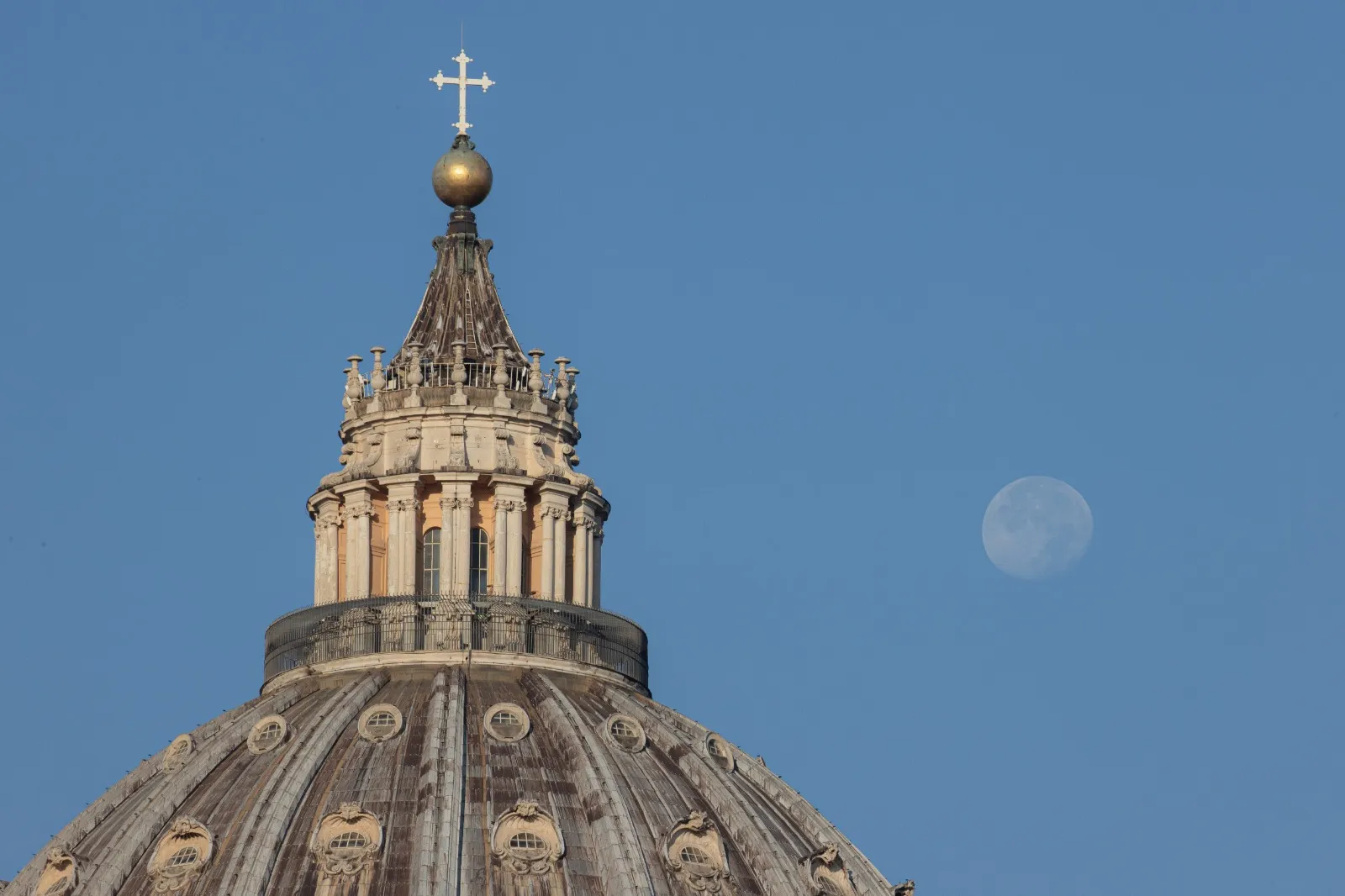
Rome Newsroom, Oct 12, 2022 / 03:35 am (CNA).
At his public audience on Wednesday, Pope Francis spoke about the role desire plays in spiritual discernment, comparing it to a compass that points one in the right direction.
“Desire is not the craving of the moment. No. The Italian word, desiderio, comes from a very beautiful Latin term, desidus, literally ‘the lack of the star,’” Pope Francis said in St. Peter’s Square on Oct. 12.
“Desire is ‘the lack of the star,’ of the reference point that orients the path of life,” he continued. “It evokes a suffering, a lack, and at the same time a tension to reach the good that is missing.”
The pope spoke in his general audience about desire as the third “indispensable ingredient” of discernment, after prayer and self-knowledge.

On Aug. 31, Francis began a series of weekly catecheses, or messages, on discernment, which he described as “an exercise of intelligence, and also of skill and also of will, to seize the opportune moment” in order to make a good choice about one’s life.
“Desire, then,” he said in the live-streamed address on Wednesday, “is the compass to understand where I am and where I am going. Actually, it is the compass for whether I am standing still or going.”
Pope Francis addressed how someone can recognize desire within themselves in his message. “A sincere desire,” he said, “knows how to touch deeply the chords of our being, which is why it is not extinguished in the face of difficulties or setbacks.”
“Unlike a momentary craving or emotion, desire lasts through time, even a long time,” he explained.

Pope Francis pointed to some of the pitfalls to knowing the desires of one’s heart; for example, society’s promotion of “the maximum freedom of choice,” while those “choices” are mostly reduced to just what is wanted most in the moment, not what will truly satisfy over the long term.
“We are bombarded by a thousand proposals, projects, possibilities, which risk distracting us and not permitting us to calmly evaluate what we really want,” the pope said, adding that many people go around “with their cell phones in their hands and they are searching, looking,” but never stopping to think or reflect.
“Desire cannot grow like that,” he said. “You live in the moment, satiated in the moment, and desire does not grow.”
Francis said that distraction can cause people a lot of suffering “because they do not know what they want from their lives; they have probably never got in touch with their deepest desire.”
Another pitfall the pope mentioned was the knowledge that one wants to do something but never actually takes action.
“And so certain changes, though desired in theory, when the opportunity arises are never implemented,” he said.
“Often,” he said, “it is indeed desire that makes the difference between a successful, coherent and lasting project, and the thousands of wishes and good intentions with which, as they say, ‘hell is paved with.’”

He recalled that Jesus, before performing a miracle, often questions a person about his or her desires, like he does with the paralytic at the pool of Bethesda in chapter five of the Gospel of John.
“Jesus asks him: ‘Do you want to be well?’ How come?” the pope said.
He explained that “Jesus’ question was an invitation to bring clarity to his heart, to welcome a possible leap forward: to no longer think of himself and his own life ‘as a paralytic,’ transported by others. … By engaging in dialogue with the Lord, we learn to understand what we truly want from life.”
The paralytic, he continued, is an “example of people [who say,] ‘Yes, yes, I want, I want,’” but in the end, never do anything.
Instead of taking action, we find excuses or complain: “But be careful,” he said, because “complaints are a poison, a poison to the soul, a poison to life because they don’t make you grow the desire to move forward.”
“If the Lord were to ask us, today, the question he asked the blind man in Jericho: ‘What do you want me to do for you?’ how would we answer?” the pope said. “Perhaps we could finally ask him to help us know his deepest desire, that God himself has placed in our heart.”
If you value the news and views Catholic World Report provides, please consider donating to support our efforts. Your contribution will help us continue to make CWR available to all readers worldwide for free, without a subscription. Thank you for your generosity!
Click here for more information on donating to CWR. Click here to sign up for our newsletter.




“Desire is ‘the lack of the star,’ of the reference point that orients the path of life. It evokes a suffering, a lack, and at the same time a tension to reach the good that is missing” (Francis).
There is truth in what His Holiness says. Desires, understood as our natural, initial appetites are always directed toward some good. Although this sensual impetus toward a good is simultaneously apprehended by the intellect, and subject to the decision of the will. The desire is then willfully inclined in one direction or another. That willful decision of direction, our inclination is where and when morality begins. For example, evil is a willed privation to a good end (Aquinas ST 1a 49 1). Good is the decision to will a good end. Moral good or evil is in the will.
The missing star, a good, is therefore subject to a moral decision, whether it’s licit to pursue what that initial desire entails. If it’s a good belonging to another we cannot take, presume we’re free to acquire it. Unless Pope Francis explains this very common, basic comprehension of a moral decision, it is misleading to propose to the faithful that our natural desires are to be pursued without deliberation of that, which in all instances are the conditions of the act. We may wish the person in mind to be embraced by the Church, to be the recipient of our greatest gift, the Holy Eucharist. Although, if the person is living in a manifest irregular or sinful relationship our desire for this wish is conditional. Repentance.
It is then entirely misleading to propose that the initial desire for a good determines the good or evil to pursue it.
“Desire points our discernment in the right direction”…
I presume that this could mean that the desire of traditional Catholics for a new pope points our discernment in the right direction!
Veni Creator Spiritus
We can also desire sinful and wicked things for various reasons, so our desire is not a dependable guide for discerning anything. Read and learn the Bible, and make that your discernment guide!
In Christ,
Andrew
Desire to go in for discernment is a form of vibrant prayer. Long live discernment. Saint Ignatius of Loyola – Pray for us.